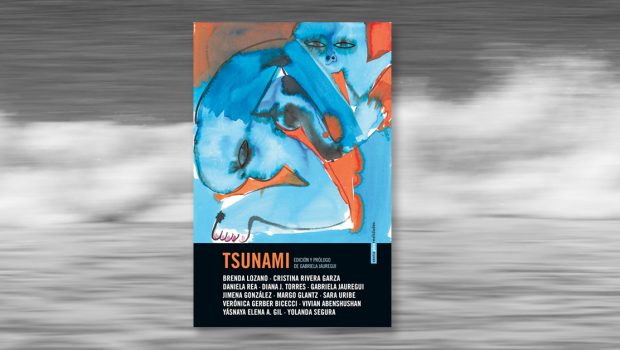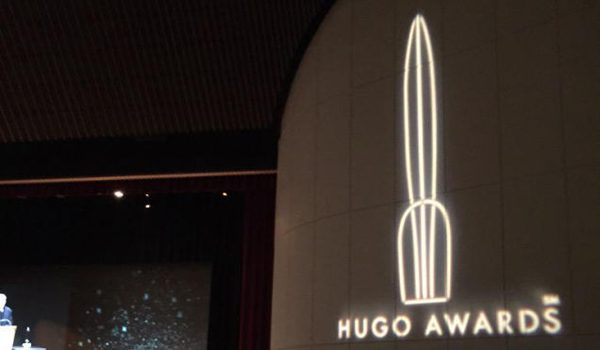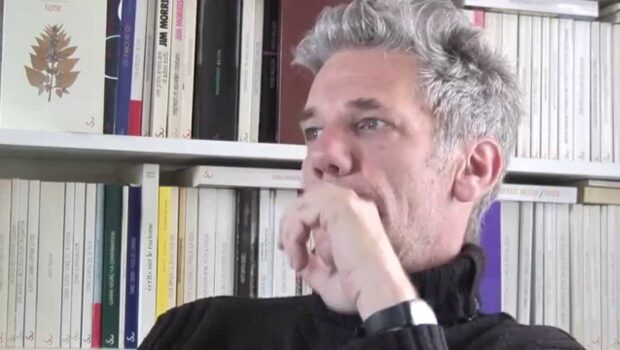“Leamos” (“Let’s Read”). The response of the Texas Book Festival to a demographic shift in the population of Texas
“Leamos”. La respuesta del Texas Book Festival a un cambio demográfico de la población de Texas
Adriana Pacheco
Austin is the city of events that thousands of people follow in the country. It is the home of SXSW, ACL, Formula 1, the Rodeo, and a myriad of more celebrations that are anticipated each year in a calendar that fills up month by month. Among all of them, the one organized inside and around the Capitol and Congress Avenue is dedicated to literature. The Texas Book Festival is the grand celebration of the book and a thermometer of what is happening in the literary scene of the United States with more than 300 writers from Texas and across the country. Its white tents and the sumptuous halls of the legislative chamber are filled with presentations predominantly in English. In Spanish, until now, there have been some sessions, with the exception of its famous tent of readings for children, where there is a space for bilingualism. For adults, I have listened to writers of Latin origin, Chicano or Mexican-American like Sandra Cisneros or Sonia Sotomayor, along with some that may fall into the category of Latinx like Jennine Capó Crucet, Kali Fajardo-Anstine, and Ivelisse Rodriguez; all in English. And although I must say that I have also heard female writers presenting in Spanish like Gabriela Couturier and Cristina Rivera Garza, the presence of this language barely peeks through in its program.
This is particularly striking as it occurs in the second state in the country with the largest Hispanic-origin population, and now, even after the publication of the results of the latest census by the U.S. Bureau in 2022, we know that they have surpassed the non-Hispanic population at 40.2% compared to 39.8%. It happens in the state where out of the 30 million people who live there, 7 million speak Spanish; in the state where of the Texans under 18 years old, 49.3% are of Hispanic origin. All these numbers put a new face on its demographics with a racial mix that integrates immigrants predominantly from Mexico, El Salvador, Puerto Rico, Honduras, and Guatemala, and with the descendants of those Mexicans who lived here before 1845, when Texas became the 28th state of the American Union.
And if there is one thing these communities have in common, it’s the language. Spanish, now more than ever, is present at home, in classrooms, universities, and workplaces. According to Pew Research, 96% of Latinos say their parents speak Spanish and that they try to preserve it through the generations; that 88% believe that maintaining Spanish is important for survival, for more economic opportunities, and to counteract the language loss that occurs from generation to generation.
All this is understood by the acting interim director of the Texas Book Festival, Dalia Azim, the Literary Director, Hannah Gabel, and the entire team that makes up the 2023 fair edition. So, for the first time in the history of the fair, there is a conscious and organized effort to have a program with more book presentations and a tent focused on authors in Spanish that they have called: “Leamos” (“Let’s Read”). This name acts as an umbrella to address one of the issues we face most when talking about hispanidad and Spanish in the United States, which is to include groups that identify as Chicano, Mexican-American, Latino, Hispanic, or Latinx. The goal is to create a more inclusive space for the great diversity of writers and topics that write in Spanish in this country; to welcome those who are read here but write from Spanish-speaking countries and that also have been translated to English; to offer to English-speaking readers who are interested in these books, a selection of books in translation and bilingual editions.
The literary curation done this year reflects this breadth with a program that includes names in narrative such as: Rosa Beltrán, who comes from Mexico to present her book Free Radicals (Hablemos escritoras y Katakana Editores), Sylvia Aguilar Zeleny, also a Mexican writer who brings Trash (Deep Vellum) from El Paso, Texas. There will also be Cuban-American writer Cristina García presenting a book on Cubans in the diaspora, Vanishing Maps (Penguin Random). Esmeralda Santiago from Puerto Rico is another guest this year with a beloved book Las madres (Knopf Publishing), and also Ingrid Rojas Contreras, born in Colombia, with her book The Man Who Moved the Clouds (El hombre que movía las nubes) (Penguin Random). In poetry are: Tim Z. Hernandez with Some of the Light (Beacon Press/ Raised Voices Series) and Sebastián H Páramo with Portrait of Us Burning (Northwestern University Press/Curbstone). In collaborative writing is the book that is the result of efforts by the University of Texas to create a Spanish writing program: Contar Historias. Escritura Creativa en el Aula (Tower Press) coordinated by Gabriela Polit-Dueñas. In graphic, Roj Rodríguez with a book that, through a photo-documentary, Mi sangre (Hatje Cantz), shows the relationship between Mexico and the United States.
Efforts like these, which take place in initiatives that reach a broad group, are the opportunity to invite the community to see from another light the cultural diversity and historical value of the countries of origin of millions of migrants and from there to avoid racism and achieve integration. For the Texas Book Festival, it is a big step where there will now be more work to open more and more spaces, bring more authors and publishing labels from outside the United States, to consolidate itself as a meeting point. Indeed, while it is true that Spanish-language book fairs in the United States, such as Leála in California or FILNYC in New York, already do a great job, those that are predominantly in English have much larger audiences, more possibilities to impact more people, and many more resources. For this reason, recognizing the change that the Texas Book Festival is making today and supporting it is important for continuing the fight to gain spaces, to preserve our language in this country, and to educate everyone in the great diversity and talent that comes from the Spanish-speaking world and that, in Texas, increasingly fills the state with Hispanicity.
 Adriana Pacheco, PhD. es investigadora y es escritora. Fundadora del Proyecto Escritoras Mexicanas Contemporáneas y la fundadora y conductora de la página web y podcast Hablemos, Escritoras. Es autora de los libros Romper con la palabra, violencia y género en la obra de escritoras mexicanas contemporáneas y Rompiendo de otras maneras, cineastas, periodistas, dramaturgas y performes. Es miembro del International Board of Advisors en la Universidad de Texas, Austin. Su Twiter es @adrianaXIX_XXI
Adriana Pacheco, PhD. es investigadora y es escritora. Fundadora del Proyecto Escritoras Mexicanas Contemporáneas y la fundadora y conductora de la página web y podcast Hablemos, Escritoras. Es autora de los libros Romper con la palabra, violencia y género en la obra de escritoras mexicanas contemporáneas y Rompiendo de otras maneras, cineastas, periodistas, dramaturgas y performes. Es miembro del International Board of Advisors en la Universidad de Texas, Austin. Su Twiter es @adrianaXIX_XXI
©Literal Publishing. Queda prohibida la reproducción total o parcial de esta publicación. Toda forma de utilización no autorizada será perseguida con lo establecido en la ley federal del derecho de autor.
Las opiniones expresadas por nuestros colaboradores y columnistas son responsabilidad de sus autores y no reflejan necesariamente los puntos de vista de esta revista ni de sus editores, aunque sí refrendamos y respaldamos su derecho a expresarlas en toda su pluralidad. / Our contributors and columnists are solely responsible for the opinions expressed here, which do not necessarily reflect the point of view of this magazine or its editors. However, we do reaffirm and support their right to voice said opinions with full plurality.
Austin es la ciudad de los eventos que miles de personas siguen en el país. Es la casa del SXSW, del ACL, de la Fórmula1, del Rodeo y de una infinidad de celebraciones más que se esperan cada año en un calendario que se llena mes a mes. De entre todos ellos, el que se organiza en el interior y los jardines del Capitolio y Congress Avenue está dedicado a la literatura. El Texas Book Festival es la gran fiesta del libro y un termómetro de lo que pasa en la escena literaria de los Estados Unidos con más de 300 escritores de Texas y de todo el país. Sus carpas blancas y los suntuosos salones de la cámara de legisladores se llenan con presentaciones mayoritariamente en inglés. En español hay, hasta ahora, algunas sesiones, con excepción de su famosa carpa de lecturas para niños, en donde sí hay un espacio para el bilingüismo. Para adultos, he escuchado a escritores de origen latino, chicanos o mexicanos-americanos como Sandra Cisneros o Sonia Sotomayor, junto con algunas que pueden entrar en la categoría de Latinx como Jennine Capó Crucet, Kali Fajardo-Anstine, and Ivelisse Rodriguez; todo en inglés. Y aunque sí debo decir que también he escuchado a escritoras presentando en español como Gabriela Couturier y Cristina Rivera Garza, la presencia de este idioma apenas asoma en su programa.
Esto llama enormemente la atención al suceder en el segundo estado del país con más población de origen hispano, y que ahora, incluso, después de la publicación de los resultados del último censo del U.S. Bureau 2022, sabemos que ya han rebasaron a la población no hispana en un 40.2% contra un 39.8%. Sucede en el estado en donde de los 30 millones de personas que lo habitan, 7 millones hablan español; en donde de los tejanos menores de 18 años el 49.3% son de origen hispano. Todos estos números le ponen una nueva cara a su demografía con una mezcla racial que se integra con inmigrantes mayoritariamente de México, El Salvador, Puerto Rico, Honduras y Guatemala y con los descendientes de aquellos mexicanos que vivían acá desde antes de 1845, cuando se convierte Texas en el estado número 28th de la Unión Americana.
Y si algo tienen en común estas comunidades es que el idioma. El español ahora más que nunca está presente en casa, en aulas de clase, universidades y en lugares de trabajo. De acuerdo al Pew Research, el 96% de latinos dicen que sus padres hablan español y que tratan de conservarlo a lo largo de generaciones; que el 88% opinan que conservar el español es importante para sobrevivir, tener más oportunidades económicas y para contrarrestar la perdida que se da del idioma generación tras generación.
Todo esto lo entiende la directora interina del Texas Book Festival, Dalia Azim, la Directora literaria, Hannah Gabel y todo el equipo que conforma la emisión de la feria 2023, así que por primera vez en la historia de la feria, hay un esfuerzo consciente y organizado de tener un programa con más presentaciones de libros y una carpa enfocada en autores en español que han llamado: “Leamos”. Este nombre funciona como sombrilla para resolver una de las problemáticas a la que más nos enfrentamos en el momento de hablar sobre hispanidad y español en los Estados Unidos que es incluir a grupos que se identifican como chicanos, mexicano-americanos, latinos, hispanos o latinx. El objetivo es crear un espacio más incluyente para la gran diversidad de escritores y temas que escriben en español en este país; es recibir a los que son leídos acá, pero escriben desde países de habla hispana y que incluso han sido traducidos al inglés; es darles a los lectores de habla inglesa que estén interesados en estos libros, una oferta de libros en traducción y bilingües.
La curaduría literaria que se hizo este año muestra esta amplitud con un programa que incluye nombres en narrativa como: Rosa Beltrán, quien viene desde México a presentar su libro Free Radicals (Hablemos escritoras y Katakana Editores), Sylvia Aguilar Zeleny escritora también mexicana que desde El Paso Texas trae Trash (Deep Velum). Estará también la escritora cubana-americana Cristina García que presentará un libro sobre los cubanos en la diáspora Vanishing Maps (Penguin Random). Esmeralda Santiago de Puerto Rico es otra de las invitadas este año con un libro entrañable Las madres (Knopf Publishing) y también Ingrid Rojas Contreras nacida en Colombia, con su libro El hombre que movía las nubes (Penguin Random). En poesía están: Tim Z. Hernandez con Some of the Light (Beacon Press/ Raised Voices Series) y Sebastián H Páramo como Portrait of Us Burning (Northwestern University Press/Curbstone). En escritura colaborativa está el libro que es resultado de los esfuerzos de la Universidad de Texas para crear un programa de escritura en español: Contar Historias. Escritura Creativa en el Aula (Tower Press) coordinado por Gabriela Polit-Dueñas. En gráfico Roj Rodríguez con un libro que a través de un foto-documental, Mi sangre (Hate Cantz), muestra la relación entre México y los Estados Unidos.
Esfuerzos así, que se dan en iniciativas que llegan a un amplio grupo es la oportunidad de invitar a la comunidad a ver desde otra luz la diversidad cultural y el valor histórico de los países de origen de millones de migrantes y desde ahí evitar el racismo y lograr la integración. Para la Texas Book Festival es un gran paso en donde quedará ahora más trabajo para abrir más y más espacios, traer más autores y sellos editoriales de fuera de los Estados Unidos, para consolidarse como un punto de encuentro. Pues sí, si bien es cierto que las ferias de libros en español en los Estados Unidos como Leála en California o FILNYC en New York, ya hacen un gran trabajo, las que son mayoritariamente en inglés tienen mucho más público, más posibilidades para impactar a más personas y muchos más recursos. Por esto, reconocer el cambio que el Texas Book Festival está haciendo hoy y apoyarlo, es importante para seguir en la lucha por ganar espacios, preservar nuestro idioma en este país y para educarnos a todos en la gran diversidad y talento que viene del mundo hispano hablante y que, en Texas, cada vez llena más el estado de hispanidad.
 Adriana Pacheco, PhD. es investigadora y es escritora. Fundadora del Proyecto Escritoras Mexicanas Contemporáneas y la fundadora y conductora de la página web y podcast Hablemos, Escritoras. Es autora de los libros Romper con la palabra, violencia y género en la obra de escritoras mexicanas contemporáneas y Rompiendo de otras maneras, cineastas, periodistas, dramaturgas y performes. Es miembro del International Board of Advisors en la Universidad de Texas, Austin. Su Twiter es @adrianaXIX_XXI
Adriana Pacheco, PhD. es investigadora y es escritora. Fundadora del Proyecto Escritoras Mexicanas Contemporáneas y la fundadora y conductora de la página web y podcast Hablemos, Escritoras. Es autora de los libros Romper con la palabra, violencia y género en la obra de escritoras mexicanas contemporáneas y Rompiendo de otras maneras, cineastas, periodistas, dramaturgas y performes. Es miembro del International Board of Advisors en la Universidad de Texas, Austin. Su Twiter es @adrianaXIX_XXI
©Literal Publishing. Queda prohibida la reproducción total o parcial de esta publicación. Toda forma de utilización no autorizada será perseguida con lo establecido en la ley federal del derecho de autor.
Las opiniones expresadas por nuestros colaboradores y columnistas son responsabilidad de sus autores y no reflejan necesariamente los puntos de vista de esta revista ni de sus editores, aunque sí refrendamos y respaldamos su derecho a expresarlas en toda su pluralidad. / Our contributors and columnists are solely responsible for the opinions expressed here, which do not necessarily reflect the point of view of this magazine or its editors. However, we do reaffirm and support their right to voice said opinions with full plurality.










